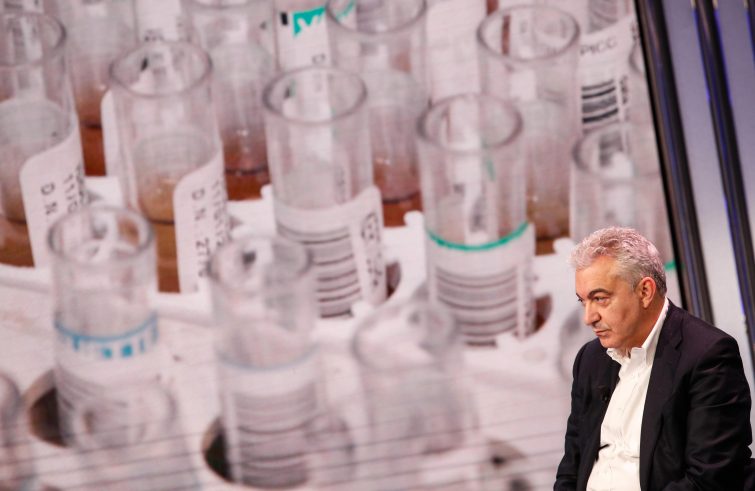
While the world is eagerly awaiting an anti-Covid-19 vaccine, Italy is struggling with influenza vaccine shortages, unavailable to general practitioners in many regions, pressed every day by patients’ requests. The situation is highly critical in Lombardy, as well as in Liguria and large areas of Lazio, including Rome. In Puglia, Campania, Emilia-Romagna and Tuscany there appears to be some improvement. What happened? We had to expect that faced by the challenge of the coronavirus emergency, this year’s request for influenza vaccine, strongly recommended by the Ministry of Health and extended to the 60-64 year-old age group, would see an upsurge, and thus preparedness was crucial. AIFA announced in a statement that there are “more than 17 million doses available” vs. “12.5 million in 2019.” Are they sufficient? What does this shortage depend on? SIR asked Tommasa Maio, General Practitioner in the province of Novara and in charge of vaccines at FIMMG (Italian General Practitioners Federation).
 “In Italy 16 million are elderly or chronically ill patients, regardless of age”, the expert said. “To these entitled persons must be added healthcare and law enforcement staff, children aged six months to six years, pregnant women, veterinarians and animal breeders. The number of doses purchased has unquestionably increased, but not enough:
“In Italy 16 million are elderly or chronically ill patients, regardless of age”, the expert said. “To these entitled persons must be added healthcare and law enforcement staff, children aged six months to six years, pregnant women, veterinarians and animal breeders. The number of doses purchased has unquestionably increased, but not enough:
Many of those entitled risk not being vaccinated against the flu.
We must nevertheless avoid spreading panic among the population at large: the most critical cases will certainly be protected. But it must be said that the regions took fragmented decisions and, while we sounded the alarm as early as last March, they took action at a very late date and in random order.
Might it be possible to set up a central steering committee, nationwide, tasked with projecting year-by-year requirements and scheduling procurement in advance?
We made that proposal back in March and we continue to reiterate that in an emergency phase such as the present one it makes even more sense:
namely, to urgently establish centralized governance, purchase vaccines on time and streamline their distribution based on the needs of the regions in terms of population and characteristics.
Unlike European countries, tender procedures in Italy are carried out by regional healthcare agencies which subsequently, through local pharmacies or districts, depending on organization capacities, redistribute the doses to general practitioners. When the H1N1 pandemic was announced in 2009, vaccines were purchased by National Civil Defence and distributed thereafter. Why not repeat that experience? When it comes to tenders, an entire country can compare purchases with its European counterparts, but the situation of a region, perhaps as small and scarcely populated as Molise, is quite different. Can you imagine Molise competing with Germany? David against Goliath. Moreover, purchasing large quantities at a national level could result in a more convenient price.
As a general practitioner, what is your personal experience?
I should have received 100 doses but I will be given 50. The worst thing is having to make the difficult choice of who to vaccinate and who not, based on clinical conditions and diseases, postponing the vaccination for some, without knowing for sure that they will be vaccinated at a later date. Having to establish a rationale for immunization is a dramatic scenario that should never occur.
Is nationwide data on vaccines administered to date available?
Not so far. The only official data regards the potentially purchased doses that you mentioned earlier, amounting to over 17 million. Family doctors are working hard to administer the first batch and thus obtain the next one, but the precautionary measures against coronavirus – personal protective equipment, spaced out appointments, sanitization – require organization and entail delays. There is, however, a positive aspect.
Which is…?
The flu vaccination campaign is not over yet. We requested and obtained that unlike previous years the deadline for the withdrawal of vaccines in all regions be extended after December 31. We requested not to set a deadline and we are exerting pressure as individual doctors, in my case on local pharmacies, in other cases on municipalities, to ensure the highest amount of doses. However, if a given region has not purchased enough vaccines in advance, the supply chain will be hampered. Regions with poor planning are now facing major difficulties.
Some elderly people have been put “on standby” by their general practitioner, lacking the appropriate vaccine. How come?
In terms of appropriateness there are two types of flu vaccines, the quadrivalent and the trivalent. The latter is “adjuvated”, i. e. it contains a molecule that enhances the immune response of the vaccine. That’s why the guidelines recommend the former for people under 65, and the “adjuvated” one for the elderly with a less reactive immune system. However, only the quadrivalent flu vaccine has been distributed in some regions and many family doctors are administering it to everyone.
This year also the anti-pneumococcal vaccine was strongly recommended.
It is important to distinguish between Covid-19 symptoms and those caused by flu diseases, which overlap. On a vaccinated patient, such symptoms increase the likelihood that it may be Covid-19. We have therefore urged the population to be vaccinated not only against influenza but also against pneumococcal pneumonia – although there seems to be also a shortage of this vaccine – and we are working to raise awareness on the importance of adult vaccination against tetanus, diphtheria and whooping cough. We see many cases of whooping cough in adults, which could be a symptom of Covid-19.
What worries you most about this scenario?
The fact that due to inadequate planning in some regions,
not all people in vulnerable conditions will have the same health care options, yet again.
The right of an elderly person or of a young chronically ill person with diabetes or who suffered a heart attack to receive free health care cannot be violated simply because they live in a given region. As I said, we need a unified centralized governance, timely planning with the involvement of experts responsible for directly administering vaccinations to citizens and streamlining their use by supplying doses to other colleagues when they have a surplus compared to their requirements. This mainly implies the ability to reason in terms of vaccine prevention.
Investing more in vaccines means lower costs connected to hospitalization, days of hospital stay and disease, it means above all to guarantee the right of everyone to public health and medical care.












